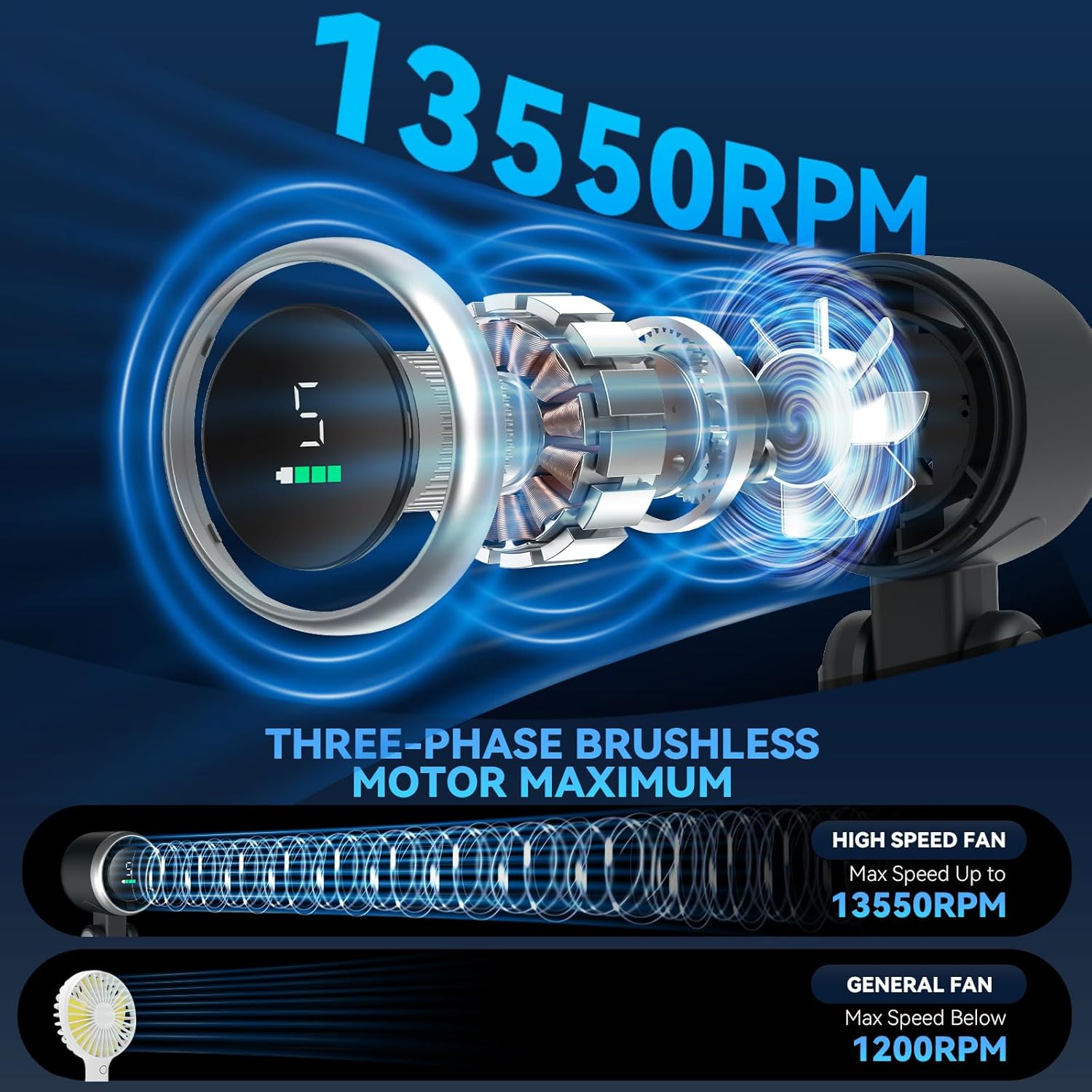Understanding the Key Components of a Fan
Fans may look simple on the outside, but behind their steady airflow lies a set of carefully engineered components working together. For customers and end users, knowing these key parts can help in choosing the right fan, while for distributors, it shows how product quality is defined.
1. Motor – The Heart of the Fan
The motor is the core driving force of any fan. Its performance directly affects speed, stability, and lifespan. High-quality motors not only ensure smooth operation but also reduce noise and energy consumption.
2. Blades – Creating the Airflow
Fan blades determine how air is circulated. The number, shape, and material of the blades influence airflow volume and smoothness. For handheld fans, lightweight blades improve portability, while larger home fans require wider blades for stronger coverage.
3. Battery and Power Supply – Ensuring Long Use
For portable and rechargeable fans, the battery is crucial. Lithium-ion batteries are widely used due to their high capacity, safety, and long cycle life. Stable power supply guarantees longer running time and reliable performance
4. Control System – Convenience at Your Fingertips
Modern fans often come with multiple speed settings, touch controls, or even smart connectivity. A well-designed control system allows users to adjust airflow according to different needs, improving overall comfort.
5. Housing and Structure – Safety and Durability
The outer casing and protective grill keep users safe and extend the fan’s service life. Materials such as ABS plastic or aluminum alloy balance durability, lightweight design, and modern aesthetics.
